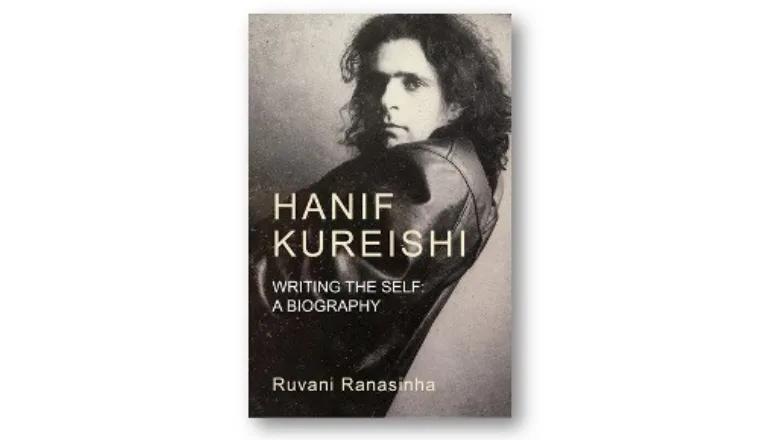Ruvani Ranasinha, Professor of Global Literatures at King's College London will publish the first biography of Hanif Kureishi with Manchester University Press after five years of researching and writing.

Drawing on his unexplored personal archive; journals, letters and manuscripts, and informed by interviews with his family, friends and lovers, Hanif Kureishi: Writing the Self recounts the seismic impact Kureishi had on British fiction and film in the late 80s, which led to an award-winning, often controversial forty year career. It illuminates the work he produced over the decades, beginning with his first literary success which Kureishi completed while studying at King's. During his years at King's, Kureishi formed an important link with the Royal Court Theatre and Richard Wolheim's lectures inspired his lasting interest in Freud.
From the global successes of My Beautiful Laundrette and The Buddha of Suburbia, through to late masterpieces such as Le Week-end and The Nothing. Hanif Kureishi is s a world famous, Oscar-nominated, CBE-awarded, prize-winning playwright, screenwriter and novelist and is still one of Britain's most popular, brave and versatile writers.
Ranasinha offers a vivid and unvarnished portrait of a major talent who has inspired a new generation of writers from a range of backgrounds.
The book will publish on 29th August 2023.
We interviewed Professor Ruvani Ranasinha on writing Kureishi's biography:
Why was it important for you to take on this project and write the first biography of Hanif Kureishi?
"Twenty years ago, I wrote my first book on Kureishi's work while writing my PhD on British Asian literature at Oxford University and I have taught his writing ever since.
So, I was intrigued to examine Kureishi's new unexplored archive of his diaries and correspondence spanning several decades to find out more about the life and contexts that shaped his plays, novels and films.
Looking back over Kureishi's life and work over the past half century, I wanted to illuminate a larger story of how the cultural landscape of modern Britain has changed through the lens and life of one of its most influential and controversial authors.
I've relished literary sleuthing in the Kureishi archive and interviewing such an interesting range of people - Kureishi's family, friends, partners and collaborators - and of course, the author himself!"
How did Kureishi's early life shape him?
"Scarred by the brutal racism of his contemporaries, their parents and some teachers, his talent was forged in retaliation to these experiences. Class and education also shaped the mixed-raced child of empire growing up in the post-war suburbs and attending the local comprehensive school. At the same time, his talented, literary father and Pakistani uncles gave an immediate possibility of a wider world. He came from a whole family of writers."
What was the most pivotal moment in Kureishi's career?
"It's hard to pick one. Perhaps his early mentoring as a teen by Jeremy Trafford, but also having his plays staged at London theatres in his early twenties, and his fruitful meeting with Stephen Frears who directed his career-defining screenplay My Beautiful Laundrette (1985)."
How does learning more about Kureishi's personal life and values help us understand more about his work?
"My biography shows how Kureishi's personal experiences shaped his coolly rational scepticism towards any kind of normative view. This is what make him such an outstanding writer."
What gave the book it's name?
"My book traces Kureishi's preoccupation with writing protean conceptions of himself into being that persists across the decades."
What impact did Kureishi have on British fiction and film in the late '80s?
"His extraordinary first film My Beautiful Laundrette (1985) and brilliant debut novel The Buddha of Suburbia (1990) defined contemporary British multiculturalism as funny, cool and appealing.
Kureishi's refutation of artists' political responsibility towards their communities liberated and paved the way for a new kind of British author."
We're delighted to be able to publish this capacious, extraordinary work on one of the most talented, brave and varied of writers. It is as honest as its subject, and a fascinating exploration of a writer who has mastered many genres. It is unlikely to be matched.
Senior commissioning editor, Matthew Frost







